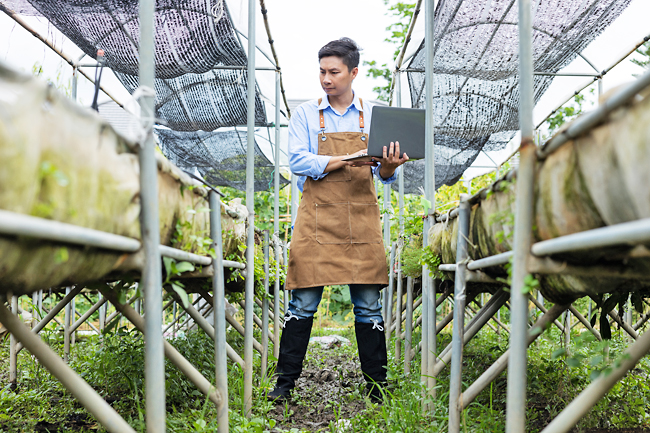The ASEAN region is embracing digital technologies to address critical challenges in agriculture, from food security and climate resilience to sustainability.
As a key economic pillar and livelihood source, the sector faces mounting pressures, including rising demand, malnutrition, climate impacts and resource depletion. As such, digital transformation offers vital solutions to boost productivity, optimise resources and promote sustainable practices.
This vision of a digitally driven agricultural future was reinforced during the ASEAN-Japan Symposium on Accelerating Digitalisation in Agriculture, held last year in Vietnam.
Held in Vung Tau, Vietnam from September 30 to October 1 last year, the event was jointly organised by the Economic Research Institute for ASEAN and East Asia (ERIA), the ASEAN Secretariat, Japan’s Ministry of Agriculture, Forestry and Fisheries (MAFF), and Vietnam’s Ministry of Agriculture and Rural Development (MARD).
During the opening session, representatives from the co-organisers of the symposium shared insights and highlighted the transformative potential of digital technologies and innovation in the agriculture and food system.
Deputy Director General of MARD, Tô Viet Châu, underscored the dual benefits of digital technologies in enhancing agricultural productivity while minimising environmental impacts.
“In addition, the digital marketplaces that link farmers directly with consumers offer a pathway towards a resilient, efficient, and sustainable agriculture and food system,” he said.
Châu emphasised that key areas within the system must be addressed to unlock this potential, including the development of digital platforms and market access, establishment of supportive policy frameworks and regulatory measures, enhancement of capacity building and knowledge transfer, promotion of public–private partnerships (PPPs) and investment opportunities, adoption of sustainable practices for climate resilience, and fostering cross-border collaboration, particularly in information sharing among ASEAN Member States (AMS).

Director and Senior Negotiator, Bilateral Affairs Division, Export and International Affairs Bureau, MAFF, Government of Japan, Hideyuki Morii, echoed these sentiments.
“No country can achieve complete self-sufficiency in food or agricultural inputs, necessitating imports to complement domestic production. Therefore, cooperation is an important action for food security,” he said.
Morii also addressed contemporary challenges, including the COVID-19 pandemic, geopolitical uncertainties, and the mounting threat of climate change, which collectively underscore the fragility of reliance on food and agricultural imports. “There is a need to make domestic agriculture and food systems sustainable by mitigating and adapting to climate change through various innovations,” he added.
Drawing on Japan’s experience, Morii suggested that AMS could glean valuable lessons in technology adoption within agriculture.
He highlighted shared regional characteristics such as the Asia-monsoon climate, high temperatures and humidity, rice paddy-based agriculture and a significant prevalence of small and medium-scale farmers.
“With this in mind, the ASEAN-Japan MIDORI Cooperation Plan was adopted at the First ASEAN-Japan Ministers of Agriculture and Forestry Meeting in October 2023,” he explained, reinforcing the importance of collaborative efforts to drive innovation and resilience in the agricultural sector.
Senior policy fellow at ERIA Masanori Kozono,highlighted several successful applications of digital technologies within the agriculture and food systems of the region, such as precision agriculture, farming advisory services, and agricultural trading via digital marketplaces.
However, they noted that challenges persist in some AMS.
“A 2023 ERIA study showed that the dissemination of digital agriculture in the ASEAN region remains limited, and there is a noticeable disparity among AMS”.
Kozono then stressed the importance of intensified efforts by governments and other stakeholders to bridge these gaps.
This includes strengthening policy instruments and initiatives, introducing effective financial schemes, fostering close collaboration between the public and private sectors, and deepening cooperation with ASEAN partners.
“In addition, more practical policy documents should be developed in the near future, such as an ASEAN regional action plan for accelerating digitalisation in agriculture, which would be follow-ups to the existing ASEAN Guidelines on Promoting the Utilisation of Digital Technologies for ASEAN Food and Agricultural Sector,” he added. – Wardi Wasil


